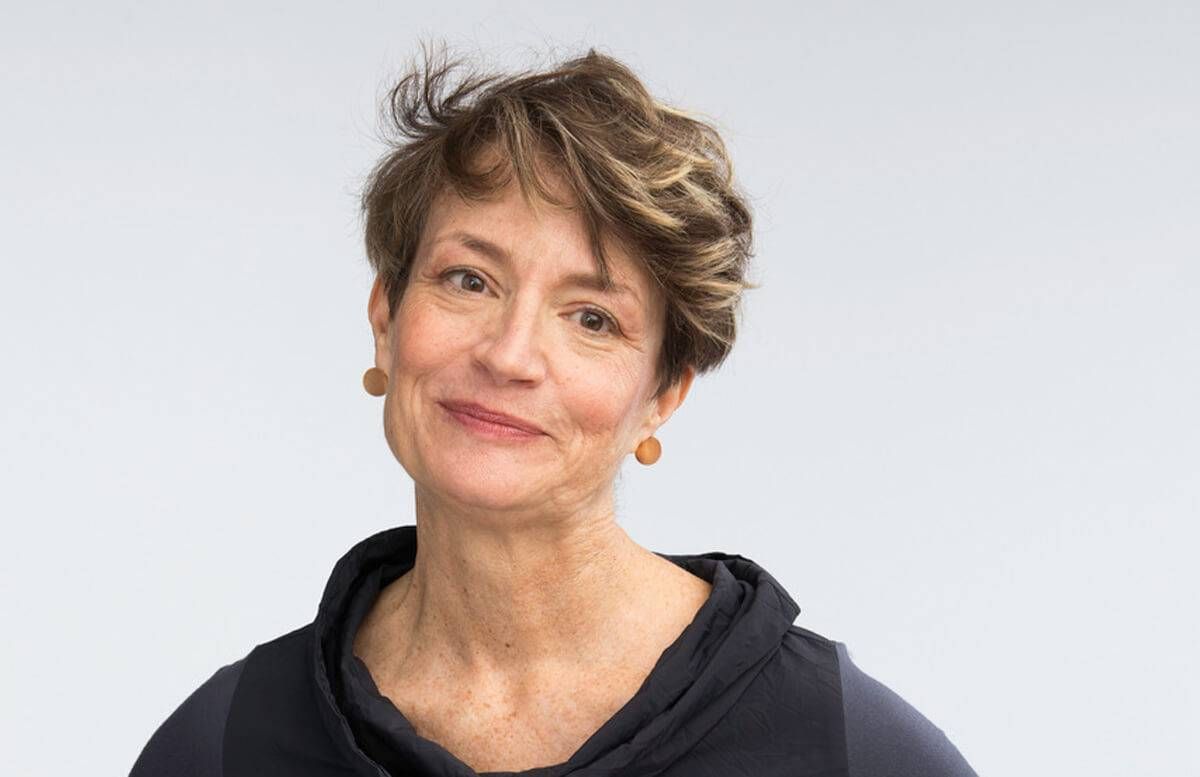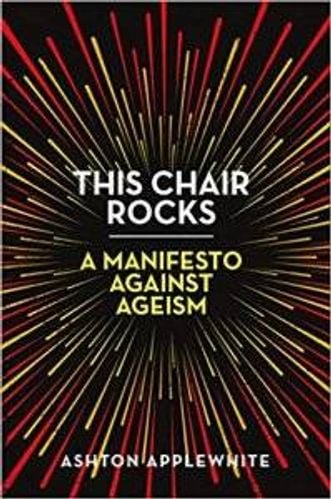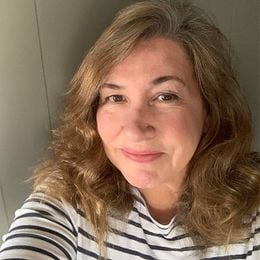Ashton Applewhite and Her Manifesto Against Ageism
The 2016 Influencer of the Year continues a consciousness-raising campaign
Imagine being in the crowd at a bullfight; the feeling of being terrified for the matador in the ring, worried about what you might see and turning away in fear because you don’t want to experience what’s going to happen next. But if you’re the matador, it’s a different view. It might be a challenge, but the bull is right there in front of you. Or as Ashton Applewhite points out, from that place, “the bull looks different.”

Applewhite, Next Avenue’s 2016 Influencer of the Year and the author of a new book, This Chair Rocks: A Manifesto Against Ageism, uses this analogy to describe a new perspective on aging “once you enter the ring.”
At a recent event in Minneapolis, co-presented by Next Avenue and Ecumen, a nonprofit specializing in senior housing services, Applewhite talked about how her view of aging has evolved over the past 15 years, and how, in that evolution, she has found a transformative purpose: to change the conversation about ageism.
After several years on the staff of the American Museum of Natural History in New York City, Applewhite says she became a "full-time activist" in 2017. As she notes, in her goal to ditch preconceptions about aging and re-imagine what aging really is and can be, “I’ve become an Old Person in Training.”
'The Fear of Aging Is Cultural’
Ageism is based on stereotypes and discrimination, and functions as a way to marginalize older adults. People “think” they know how an older adult would or should behave, but in reality, according to Applewhite, “If you’ve seen one 80-year-old, you’ve seen one 80-year-old. We grow more different from one another the older we get.”

Fighting against the messages about aging can be hard to do because they are literally all around us, even within something as simple as America's favorite pastime.
As Applewhite writes in her book: Reluctant to acknowledge a hero's physical decline, fans collude in the pretense that stars who slow, like Yankee shortstop Derek Jeter, who retired at forty with uncommon grace, are simply in prolonged slumps. Denial turns a natural progression into a personal failure.
“The fear of aging is cultural,” notes Applewhite. “There are many societies where older members are venerated. If we don’t challenge the theory that to age is to lose value as a human being, we will continue to internalize a negative message.”
Stop the Stereotypes About Aging
As for the stereotypes surrounding the easy targets of aging, such as memory and appearance, Applewhite says: it’s time for a different approach.
“I used to think the expression ‘senior moment’ was self-deprecatingly cute,” she says. “But when I was in high school and misplaced my keys, I never referred to it as a ‘junior moment.’ Everyone can lose their keys. Memory issues don’t mean dementia.”
Then there is what Applewhite refers to as the lengths people will go in order to duck away from “age shame.” She says, “Botox, facelifts, the desire to look younger — all of it is rooted in shame about something that shouldn’t be shameful.”
As Applewhite writes in her book, it's time to move past that attitude: It's embarrassing to be called out as older until we quit being embarrassed about it. Well, I'm not anymore. When someone says, "You look great for your age," I no longer mutter an awkward thanks. I say brightly, "You look great for your age, too!"
Conversation with Ashton Applewhite
In an interview with Next Avenue following the presentation, Applewhite went into more detail about discrimination, multi-generational friendships and age equity.
As Applewhite has been talking about ageism, she’s been struck by how some men approach the topic differently than women do.
“I’m starting to get push-back from white men who say I’m not generous enough or nice enough to white guys,” she says.
She mentioned an exchange she recently had with a man who had heard an NPR interview Applewhite gave while promoting her book and then sent her an email. He took exception to her suggestion that “white men are seldom discriminated against except by ageism and [her assertion] that ‘it pains me to defend white men’… it sure seems like she is trying to say that because of the color of my skin and my gender that she doesn’t need to know anything else about me to determine what I am like.”
In her reply, Applewhie wrote that she stood by her claim that ageism is the first form of discrimination many men encounter, adding that the second comment was more “tongue-in-cheek” but that she stood by it.
“Every woman on the planet is oppressed by sexism, every person of color by racism, every woman of color by both sexism and racism,” wrote Applewhite. “The path to power and visibility grows steeper when we add homophobia, ableism, and other prejudices to the mix. The path for white men is the least steep, which is why I advocate for those on the margins.”
‘We are Olders and Youngers Simultaneously’
Applewhite notes that friendships with people of all ages are another tool to combat ageism.
“People you’ve known all your life are going to die, and that’s why it’s so important to have younger friends,” she explains. “We are olders and youngers simultaneously — being friends with older people also makes younger people less afraid of aging.”
According to Applewhite, making those connections can be as simple as finding something you like to do (a sport or a community activity) and finding a mixed-age group with which to do it.
These inter-generational friendships can also help improve the climate around ageism in general, Applewhite says. “Older women can be resentful,” she admits. “As it is now, women ‘compete’ to stay young, but all that does is reinforce ageism and sexism.”
By a universal embrace of what Applewhite calls "age equity," there's a potential for fewer divisions to exist among people.
“Youth and age are different. We need to acknowledge and respect the differences without organizing them into silos,” she says.
To that end, Applewhite has started employing a simple response to the question about age that she learned from someone when she was on tour for This Chair Rocks.
“When somebody asks you how old you are, say ‘I was born in 1952’ [as she was] because the questioner won’t know the answer immediately,” she says. “People profit from our insecurities, but they can only do it if we agree to their terms.”
Old School: Resources to Fight Ageism
In addition to raising awareness about ageism via her book and her blog, This Chair Rocks, Applewhite was a team leader on the curated site, Old School, which launched in August, 2018 and offers a wealth of information on websites, campaigns, individuals and organizations leading the charge against ageism. Just a few examples: Senior Planet, Aging for Life, The Age of No Retirement, National Resource Center on LGBT Aging, and Next Avenue.
“Old School belongs to all of us. All of the information, except the books, is free. It’s been especially exciting to see the growth of anti-ageism campaigns — and there are lots of them,” she says.
All of this is to say that when it comes to ageism, Applewhite says with a smile, “This isn’t my delusional teapot. This is really happening all around the world.”
Look for an excerpt from This Chair Rocks: A Manifesto Against Ageism on Next Avenue in July.


